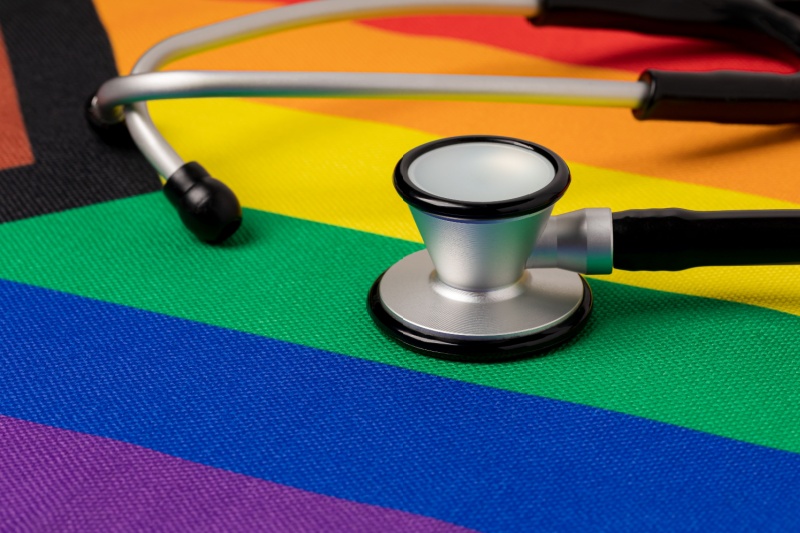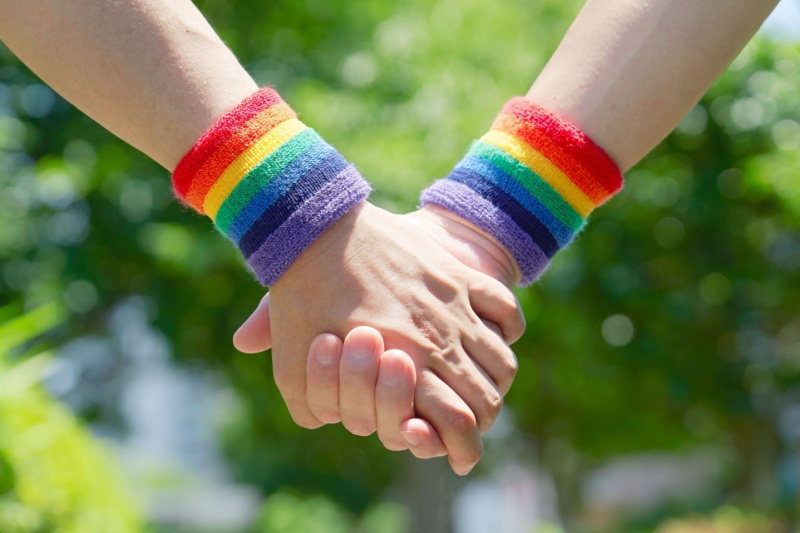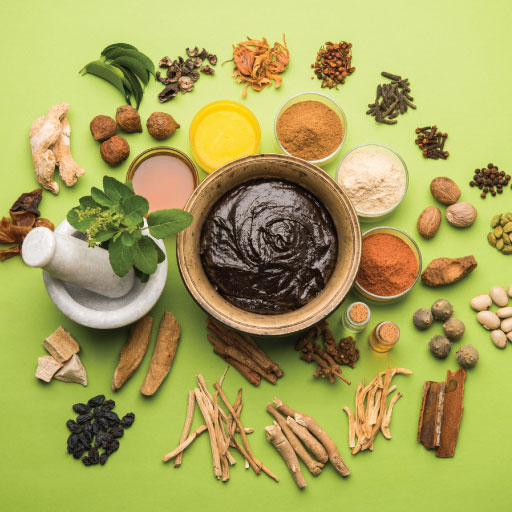Perceptions of the LGBTQIA+ community in India are shaped by deep-rooted cultural, religious, and societal norms, fueling widespread stereotypes and misconceptions. These stereotypes keep up stigma, discrimination, and marginalization, fostering an atmosphere of fear and shame. Eventually, that hinders LGBTQIA+ individuals from seeking acceptance within their families and communities. Family rejection takes a significant toll on the mental health and well-being of LGBTQIA+ individuals. Several studies consistently show increased risks of depression, anxiety, substance abuse, and suicidal thoughts in the LGBTQIA+ community. The profound sense of loss, betrayal, and isolation experienced when a family refuses to accept them can lead to severe psychological distress and a diminished sense of self-worth. Additionally, the absence of familial support deprives LGBTQIA+ individuals of crucial social and emotional resources, worsening feelings of loneliness and alienation.
Understanding the intersection of LGBTQIA+ and mental health
 To effectively assist and care for this varied community, it is essential to understand the intersection of LGBTQIA+ (Lesbian, Gay, Bisexual, Transgender, Queer/Questioning, Asexual, and other identities) and mental health. Due to social stigma, discrimination, and minority stress, LGBTQIA+ people frequently have particular mental health difficulties that can have a significant negative influence on their well-being.
To effectively assist and care for this varied community, it is essential to understand the intersection of LGBTQIA+ (Lesbian, Gay, Bisexual, Transgender, Queer/Questioning, Asexual, and other identities) and mental health. Due to social stigma, discrimination, and minority stress, LGBTQIA+ people frequently have particular mental health difficulties that can have a significant negative influence on their well-being.
One of the most significant challenges for LGBTQIA+ individuals is the prevalent stigma and discrimination they encounter in various aspects of their lives, including within families, communities, workplaces, and even within healthcare systems. This constant exposure to stigma can lead to –
- feelings of shame,
- low self-esteem,
- internalized heterosexism,
- cissexism, or
- other forms of prejudice,
all of which contribute to psychological distress.
Moreover, LGBTQIA+ individuals experience what is known as minority stress, which refers to the chronic stressors resulting from being a member of a marginalized group. This stress can stem from experiences such as
- prejudice,
- rejection,
- harassment, and
- violence,
which are disproportionately higher for LGBTQIA+ individuals compared to their heterosexual and cisgender counterparts. Constantly navigating these stressors can lead to increased levels of anxiety, depression, and other mental health conditions within the LGBTQIA+ community.
Family rejection
Family rejection is another significant factor impacting the mental health of LGBTQIA+ individuals. When individuals are rejected by their families due to their sexual orientation or gender identity, it can result in profound feelings of
- abandonment,
- betrayal, and
- isolation.
This rejection can occur in various forms, including verbal abuse, disownment, or even being forced into conversion therapy. Research consistently shows that family rejection is strongly associated with adverse mental health outcomes, including higher rates of
- depression,
- anxiety,
- substance abuse, and
- suicidal ideation
among LGBTQIA+ individuals.
Furthermore, the lack of support and acceptance from family members can exacerbate the sense of shame and internalized stigma experienced by LGBTQIA+ individuals, leading to a vicious cycle of self-destructive thoughts and behaviors. Without a supportive familial environment, LGBTQIA+ individuals may struggle to develop a positive sense of self-worth and identity, which are essential for maintaining good mental health.
Addressing these challenges requires not only individual-level interventions but also systemic changes to create more inclusive and affirming environments for LGBTQIA+ individuals. By promoting acceptance, support, and equality, we can work towards improving the mental health and well-being of the LGBTQIA+ community.
Building support systems and coping strategies

Coping with family rejection, especially in the context of one’s sexual orientation or gender identity, can be an immensely challenging experience. Some practical coping strategies and support systems are available to help you navigate this difficult situation.
Seeking support
Firstly, seeking support from chosen family and friends who are accepting and understanding can be a crucial source of emotional support. Chosen family refers to individuals who may not be biologically related but who provide love, acceptance, and support, similar to a biological family. This support network can offer validation, empathy, and a sense of belonging, which is essential for maintaining emotional well-being during familial rejection.
Reaching out to a mental health professional
Additionally, connecting with LGBTQIA+-friendly mental health professionals can be highly beneficial. These professionals are trained to provide culturally competent care and can offer specialized support tailored to the unique challenges faced by individuals within the LGBTQIA+ community. Therapy can provide a safe space to process emotions, explore identity-related issues, and develop coping skills to navigate family rejection effectively.
Self-care
Self-care practises play a vital role in managing stress and maintaining overall well-being. Mindfulness techniques, such as meditation and deep breathing exercises, can help individuals stay grounded and present in the moment, reducing feelings of anxiety and depression. Self-compassion involves treating oneself with kindness and understanding, especially in adversity. This can include acknowledging one’s emotions without judgment and offering oneself words of encouragement and support.
Setting boundaries is another crucial aspect of self-care when dealing with family rejection. Establishing clear boundaries with family members who may be unsupportive or hostile is essential, prioritizing one’s emotional safety and well-being. This may involve limiting contact with toxic individuals or setting guidelines for interactions to protect oneself from further harm.
It’s essential to recognize that coping with family rejection is a process that takes time and patience. It’s okay to seek professional help and lean on supportive networks during this challenging time. By implementing practical coping strategies and prioritizing self-care, individuals can navigate family rejection with resilience and strength, ultimately fostering their emotional well-being and sense of self-worth.
Support groups
Family rejection can be a significant source of distress. Advocacy organizations and support groups play a crucial role in providing resources and advocacy for LGBTQIA+ individuals who face family rejection. Advocacy organizations and support groups offer vital assistance and empowerment in such situations.
Firstly, these organizations provide a safe and understanding space for LGBTQIA+ individuals to share their experiences and find solidarity. By connecting with others who have gone through similar challenges, individuals can feel validated and supported in their identities. This sense of community can be immensely comforting, especially for those who may feel isolated or misunderstood by their families.
Moreover, advocacy organizations work tirelessly to raise awareness about the harmful effects of family rejection and promote acceptance and understanding within families. These organizations strive to foster a more inclusive and supportive environment for LGBTQIA+ individuals through educational initiatives, workshops, and outreach programs. By challenging societal norms and advocating for policy changes, they aim to create a world where everyone can live authentically without fear of rejection or discrimination.
In addition to emotional support, advocacy organizations also provide practical resources and guidance for LGBTQA+ individuals facing family rejection. This may include information on legal rights, housing assistance, mental health services, and referrals to LGBTQIA+-friendly professionals. These organizations empower individuals to navigate challenging situations and build a brighter future by equipping them with the necessary knowledge and resources.
Furthermore, advocacy organizations often collaborate with legal experts to provide support to LGBTQIA+ individuals who experience discrimination or violence from family members. They may offer legal counseling, assistance in filing complaints, and representation in legal proceedings. By standing up for the rights of LGBTQIA+ individuals, these organizations send a powerful message that discrimination and violence will not be tolerated, and perpetrators will be held accountable for their actions.
LGBTQIA+ individuals facing family rejection need to know that they are not alone and that help is available. By accessing community resources and seeking support from advocacy organizations and support groups, individuals can find the strength and resilience to overcome adversity and live authentically. If discrimination or violence occurs, seeking legal support is crucial to ensure that justice is served and that the rights of LGBTQIA+ individuals are protected. Together, we can work towards creating a more inclusive and accepting society where everyone is valued and respected, regardless of their sexual orientation or gender identity.
In conclusion, it’s crucial to recognize the profound impact of family rejection on the mental health and overall well-being of LGBTQIA+ individuals. The weight of familial disapproval can exacerbate existing struggles with mental health, leading to heightened levels of stress, anxiety, and depression. By addressing family rejection head-on, we not only alleviate the suffering experienced by LGBTQIA+ individuals but also foster a more inclusive and compassionate society.
Fostering acceptance and support within families is paramount in creating a safer environment for LGBTQIA+ individuals in India. When families embrace their LGBTQIA+ members with love and understanding, it strengthens familial bonds and cultivates a sense of belonging and validation for those who may feel marginalized. This acceptance serves as a powerful antidote to the discrimination and prejudice often faced by LGBTQIA+ individuals in broader society.
By promoting conversation, education, and empathy within families, we can pave the way for greater acceptance and equality for all members of the LGBTQIA+ community. Through these collective efforts, we can create a future where every individual, regardless of their sexual orientation or gender identity, feels valued, respected, and supported within their family unit and society at large.
Key Takeaways
- LGBTQIA+ individuals often face unique mental health challenges due to social stigma, discrimination, and minority stress.
- Family rejection is a critical factor that significantly affects the mental health of LGBTQIA+ individuals.
- Coping strategies include consulting a mental health professional, seeking support, and prioritizing self-care.
Stay tuned to the Activ Living Community. Keep up to date with the latest health tips and trends through expert videos, podcasts, articles, and much more on nutrition, fitness, mindfulness, and lifestyle conditions like Asthma, Blood Pressure, Cholesterol, and Diabetes. Activ Living ke saath sahi sehat ki shuruat ABHI karo.
You may also be interested in the following blogs:
Popular Searches
How to lower blood pressure | Fruits good for liver | Unhealthy foods | Ragi Benefits | Basal Metabolic Rate | Acupressure points for High Blood Pressure | Ayurvedic medicine for blood pressure | How to control cholesterol at home | Homeopathy for Asthma | Biological Age | Home remedies for TB | Natural beta blockers | Negative effects of internet | Types of walking | Blood pressure calculator | Blood sugar calculator | BMI Calculator





 1800-270-7000
1800-270-7000






